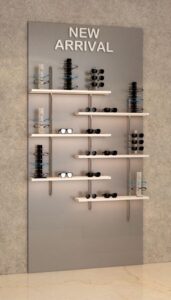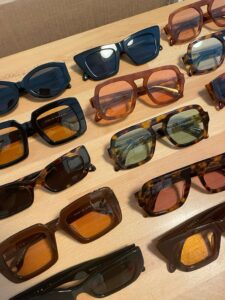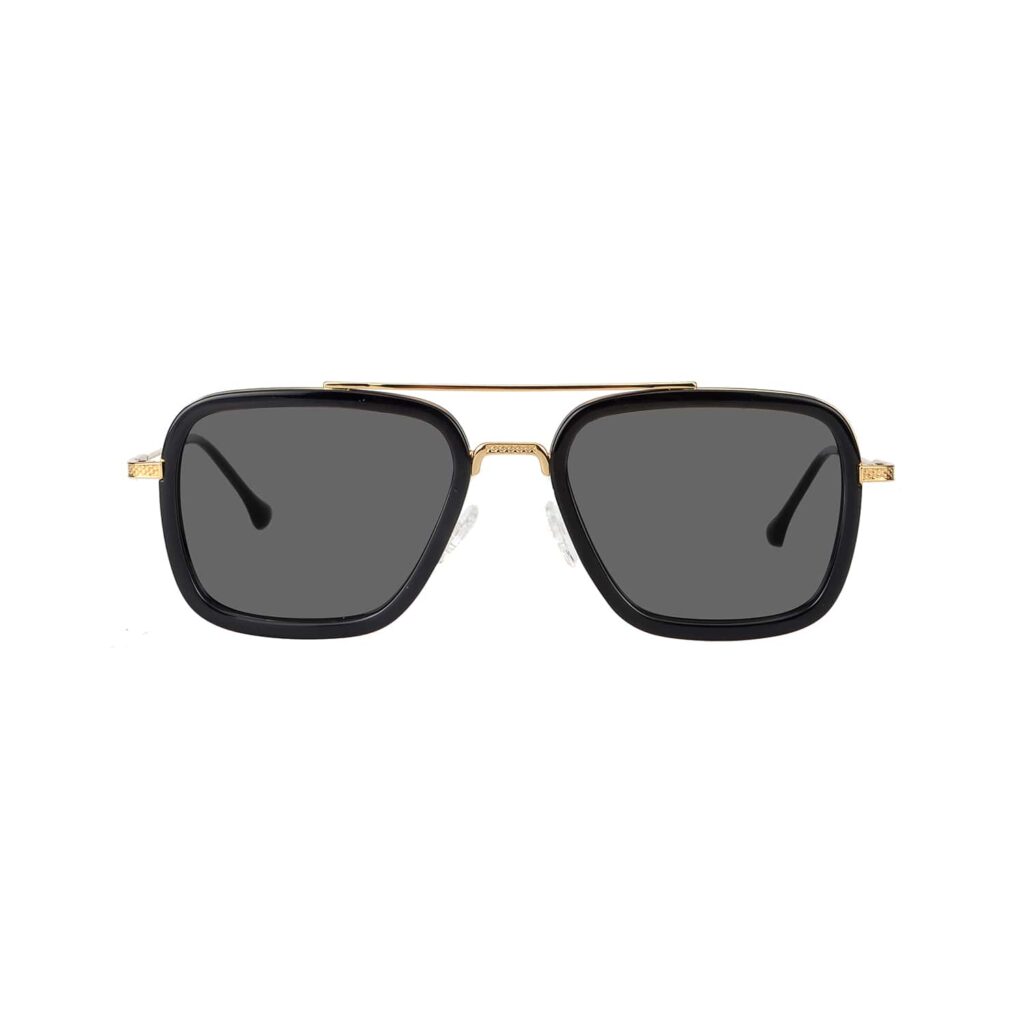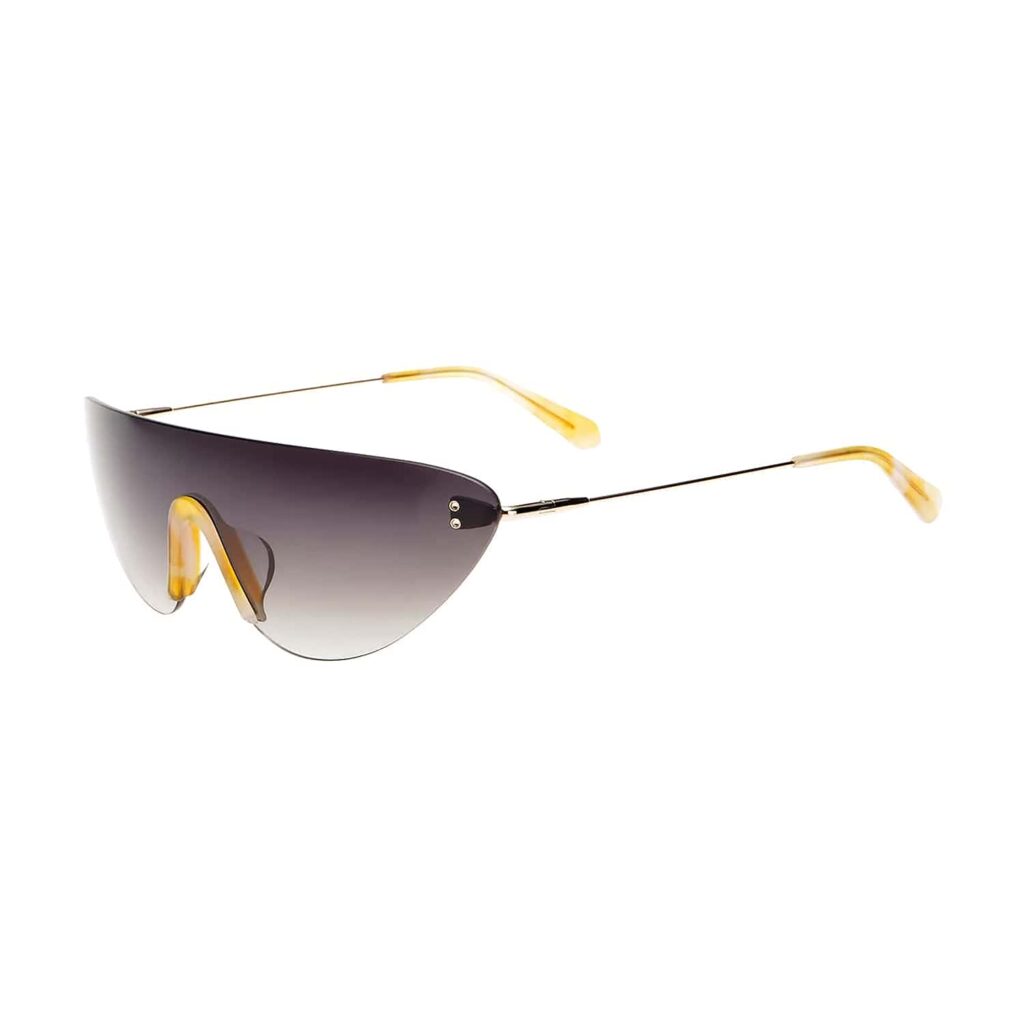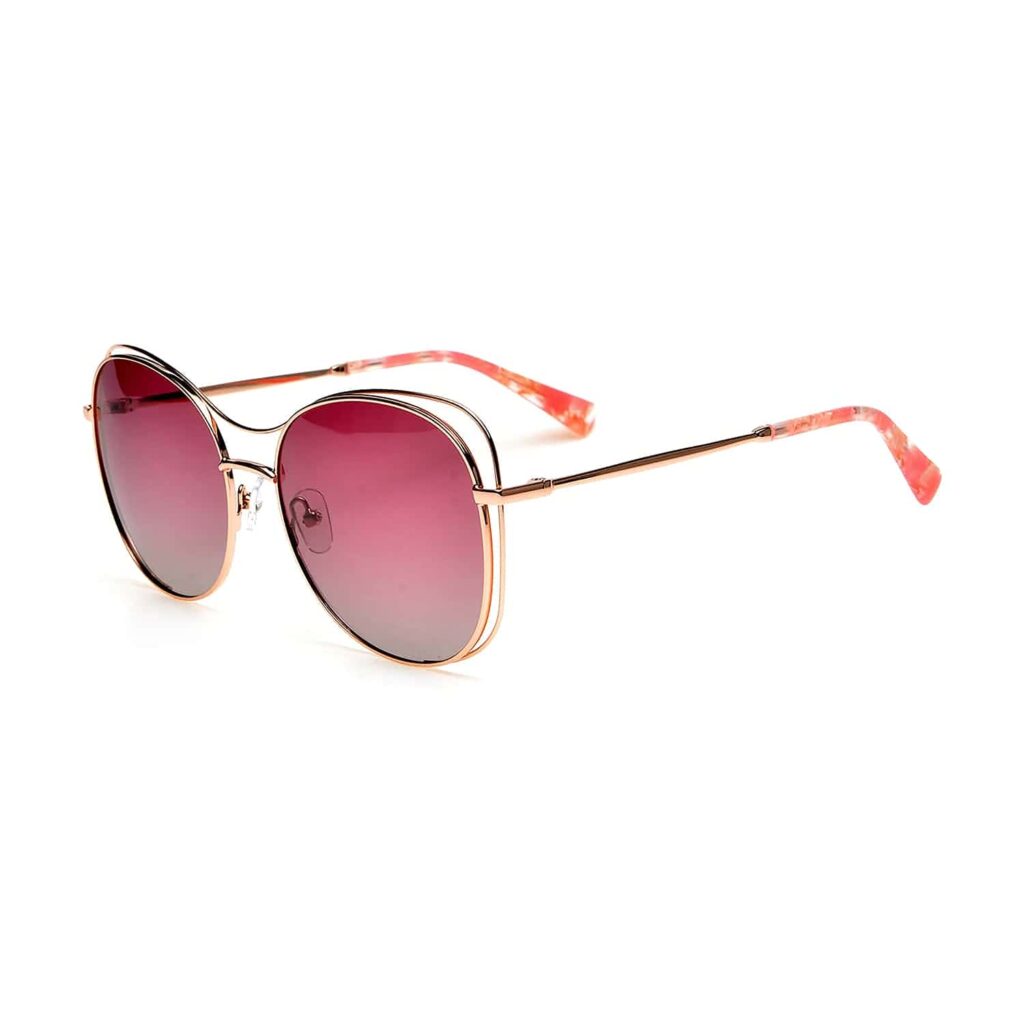
Misconceptions About Sunglasses Manufacturers Introduction
In the competitive world of eyewear, it’s essential for businesses to make informed choices when selecting a sunglasses manufacturer. However, several misconceptions about sunglasses manufacturers can lead to misunderstandings, impacting business decisions. In this article, we’ll explore the most common misconceptions about sunglasses manufacturers and highlight critical factors to consider when choosing the right partner, including the unique strengths of Joysee Eyewear.
| Misconception | Explanation |
|---|---|
| Quality and Price | Many clients wrongly assume cheaper sunglasses mean low quality, or expensive ones guarantee higher quality. It’s important to find a balance for cost-effective manufacturers. |
| Manufacturers vs. Trading Companies | Clients often confuse manufacturers with trading companies, unaware of the benefits of directly working with factories, such as lower costs and more customization options. |
| Delivery Timeliness | Not all manufacturers have the same delivery timelines. Timely delivery is crucial for inventory and market planning. |
| Minimum Order Quantity (MOQ) | Clients might think all manufacturers have fixed MOQs. In reality, quality manufacturers are flexible, adjusting to client needs. |
| Customization and Flexibility | Some assume manufacturers don’t offer small batches or personalized options, but many are able to provide flexible customization services. |
| Quality Certifications and Standards | Clients may assume all manufacturers have the same quality standards. In fact, certification levels vary, which can impact product quality. |
| Factory Environment and Social Responsibility | Some clients have misconceptions about factories being environmentally unfriendly. However, some manufacturers focus on sustainability and eco-friendly practices. |
| Production Process and Quality Control | Clients want transparency in production processes. Understanding a manufacturer’s quality control systems ensures consistency and reliability. |
| Innovation and Technology Investment | Many believe only large brands invest in advanced technology. In fact, many quality manufacturers actively incorporate innovation to improve durability and comfort. |
| OEM vs. ODM | Clients may not fully understand the difference between OEM (Original Equipment Manufacturing) and ODM (Original Design Manufacturing). It’s important to clarify service offerings. |
| Production Scale vs. Flexibility | Some clients believe larger manufacturers can’t handle small orders. Experienced manufacturers can accommodate both large and small production needs. |
| After-Sales Service and Warranty | Clients worry about post-sale support. A reliable manufacturer should offer warranties and ongoing customer support after product shipment. |
| Brand Protection and Intellectual Property | Protecting intellectual property is critical for brand owners. Clients need to know if manufacturers have policies in place to safeguard their designs and trademarks. |
| Cost Structure and Hidden Fees | Potential clients may be unaware of the cost structure and hidden fees involved. Transparent pricing is key to avoid surprises. |
| Cross-Border Communication Issues | For international clients, communication across time zones and language barriers can be a concern. Effective communication is essential for smooth collaboration. |
| Logistics and International Shipping | Clients want to ensure manufacturers can deliver on time through stable international logistics, with clear understanding of shipping costs and customs. |
| Manufacturer Stability and Long-Term Collaboration | Clients worry about a manufacturer’s ability to handle long-term projects and ensure stability in the business relationship. |
| Supply Chain Stability and Raw Material Sources | Clients are concerned about supply chain disruptions and raw material sourcing. Reliable manufacturers should offer consistent material supply. |
| Environmental and Sustainability Commitment | Clients may want manufacturers to demonstrate eco-friendly measures, such as using renewable materials and reducing carbon emissions. |
| Adaptability to Market Trends and Product Updates | Manufacturers need to be agile in adapting to market trends and updating product designs to meet evolving customer preferences. |
| Compliance with Human Rights and Labor Laws | International clients may want to ensure factories adhere to human rights and labor laws to avoid social responsibility issues. |
| Cultural Adaptability and Flexibility | Cross-cultural collaboration may present challenges. Manufacturers need to be adaptable and understand clients’ business cultures and market needs. |

1. Relationship Between Quality and Price
Misconception: Many customers believe that inexpensive sunglasses are always low-quality, while more expensive products automatically guarantee better quality.
Reality: High-quality sunglasses can be found at various price points. Identifying a manufacturer with a good balance of cost and quality is crucial for maximizing value.
2. Manufacturers vs. Trading Companies
Misconception: Some clients aren’t clear on the distinction between direct manufacturers and trading companies.
Reality: Collaborating directly with manufacturers like Joysee Eyewear offers benefits such as reduced costs, more customization options, and better quality control.
3. Misconceptions About Sunglasses Manufacturers Delivery Time Accuracy
Misconception: All manufacturers have similar delivery times.
Reality: Delivery time varies significantly across manufacturers. Choosing a reliable manufacturer is crucial for managing inventory and meeting market demands.
4. Minimum Order Quantity (MOQ)
Misconception: All manufacturers have fixed MOQ requirements.
Reality: Some manufacturers, including Joysee Eyewear, offer flexible MOQ options based on customer needs, providing valuable flexibility.
5. Customization and Flexibility
Misconception: Many clients assume manufacturers don’t offer small-batch or personalized customization services.
Reality: Quality manufacturers often offer flexible customization, enabling brands to stand out with unique products.
6. Quality Certifications and Standards
Misconception: All manufacturers adhere to the same quality standards and certifications.
Reality: Standards can vary widely. Manufacturers with international certifications ensure higher quality control and greater consistency.
.

7. Environmental and Social Responsibility of Manufacturing Plants
Misconception: Some clients assume all factories are environmentally harmful and lack social responsibility.
Reality: Manufacturers like Joysee Eyewear prioritize sustainable materials and practices, enhancing their appeal to eco-conscious brands.
8. Transparency in Production Processes and Quality Control
Misconception: The production processes of manufacturers are often opaque.
Reality: Reputable manufacturers maintain transparent quality control processes, ensuring consistency and reliability.
9. Innovation and Technology Investment
Misconception: Only large brands invest in cutting-edge technology.
Reality: Many quality manufacturers invest in advanced technology, improving durability and comfort for end consumers.
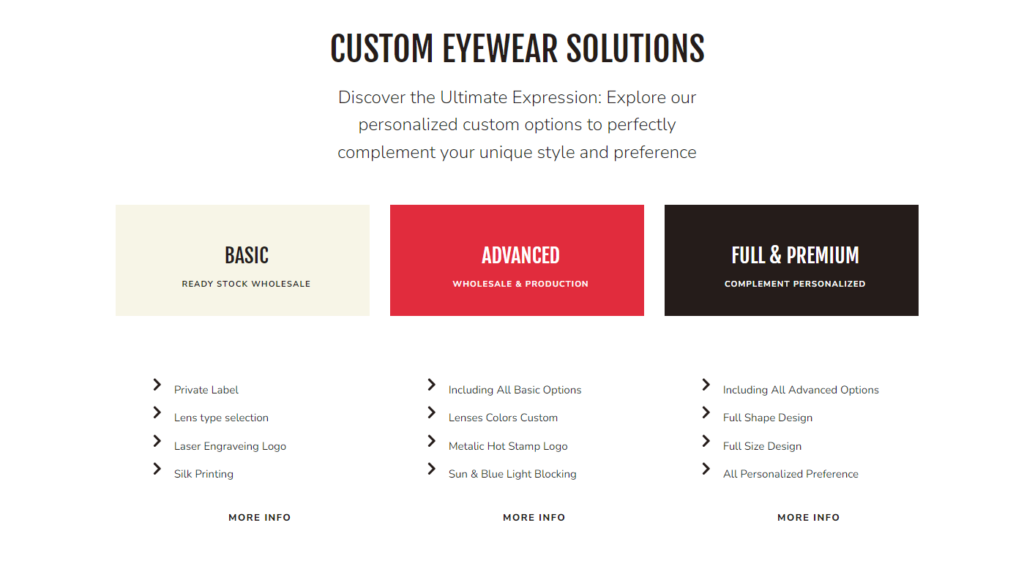
10. Misconceptions About Sunglasses Manufacturers OEM vs. ODM
Misconception: Clients often don’t understand the difference between OEM (Original Equipment Manufacturing) and ODM (Original Design Manufacturing).
Reality: Partnering with manufacturers capable of both OEM and ODM, like Joysee Eyewear, can simplify the design-to-production process.
11. Relationship Between Production Scale and Flexibility
Misconception: Large-scale manufacturers cannot accommodate small-batch orders.
Reality: Experienced manufacturers often provide flexibility for both large and small production needs.
12. After-Sales Service and Product Warranty
Misconception: Manufacturers might not provide ongoing support post-purchase.
Reality: Reputable manufacturers ensure after-sales support and product warranties, safeguarding clients’ long-term satisfaction.
13. Brand Protection and Intellectual Property
Misconception: Clients worry that manufacturers may not protect intellectual property.
Reality: Trustworthy manufacturers like Joysee Eyewear enforce strict IP protection to safeguard their clients’ unique designs.
14. Cost Structure and Hidden Fees
Misconception: Customers worry about hidden costs or unclear pricing.
Reality: Transparent manufacturers clarify cost structures upfront, helping clients manage their budgets effectively.

15. Communication and International Collaboration
Misconception: International clients fear communication and time zone challenges.
Reality: Reliable manufacturers like Joysee Eyewear offer streamlined international communication, making global collaborations seamless.
16. Logistics and International Shipping
Misconception: Clients often overlook the importance of robust logistics for timely delivery.
Reality: Established manufacturers have reliable international logistics channels to ensure timely delivery and cost-effective shipping.
17. Manufacturer Stability and Long-Term Partnership Potential
Misconception: Clients worry about the manufacturer’s stability and long-term capability.
Reality: Partnering with an established manufacturer offers long-term reliability, ensuring continuity in production and quality.
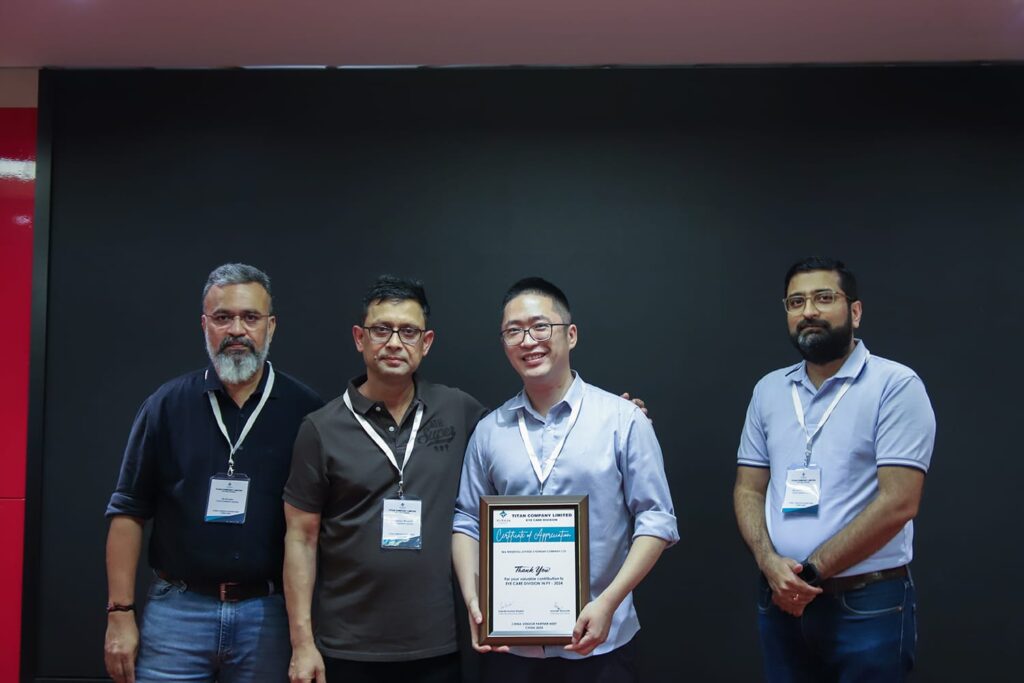
18. Supply Chain Stability and Material Sourcing
Misconception: Clients might not consider the impact of material sourcing and supply chain disruptions.
Reality: Quality manufacturers have stable supply chains, ensuring consistent material availability for uninterrupted production.
19. Environmental Commitment and Sustainability Initiatives
Misconception: Clients doubt manufacturers’ environmental practices.
Reality: Joysee Eyewear and similar manufacturers implement eco-friendly practices, such as using renewable materials and reducing carbon emissions.
20. Adaptability to Market Trends and Product Innovation
Misconception: Clients worry that manufacturers may lag behind market trends.
Reality: Forward-thinking manufacturers keep pace with trends, providing designs and functionalities that align with evolving market demands.

21. Compliance with Labor Laws and Human Rights
Misconception: Some clients assume all factories have poor labor practices.
Reality: Reputable manufacturers follow labor laws and uphold high ethical standards, safeguarding brand reputations.
22. Cross-Cultural Flexibility
Misconception: International clients fear challenges due to cultural differences.
Reality: Experienced manufacturers are adaptable to cultural nuances, helping them understand and support diverse client needs effectively.

Misconceptions About Sunglasses Manufacturers Conclusion
Understanding these misconceptions about sunglasses manufacturers can lead to better partnerships and product outcomes. By working with a knowledgeable and reputable manufacturer like Joysee Eyewear, businesses can benefit from high-quality production, flexible customization, and sustainable practices that help them succeed in the global market.
Sunglasses Manufacturing Trends 2025: Key Innovations and New
- Top Misconceptions About Sunglasses Manufacturers
- Partner with Sunglasses Manufacturers: A Step-by-Step Guide
- The Benefits of Working with Experienced Sunglasses Manufacturers
- Sunglasses Manufacturing Certifications: Essential Standards
- Assessing Customization Options from Sunglasses Manufacturers
- Modern Technology in Sunglasses Manufacturing
- Choosing a Sunglasses Manufacturer with Strong Supply Chain
- Sustainable Sunglasses Manufacturers: Eco-Friendly Solutions
- Evaluating Sunglasses Manufacturer Quality
- Affordable Sunglasses Manufacturers: Quality, Cost, and Customization
- Professional Sunglasses Manufacturers: Your Best Choice for Customization
Allen Lin
Position: Owner
Company: Joysee Eyewear
Email: allen.lin@joysee-eyewear.com
WhatsApp: +8613456050627
Website: www.joysee-eyewear.com
